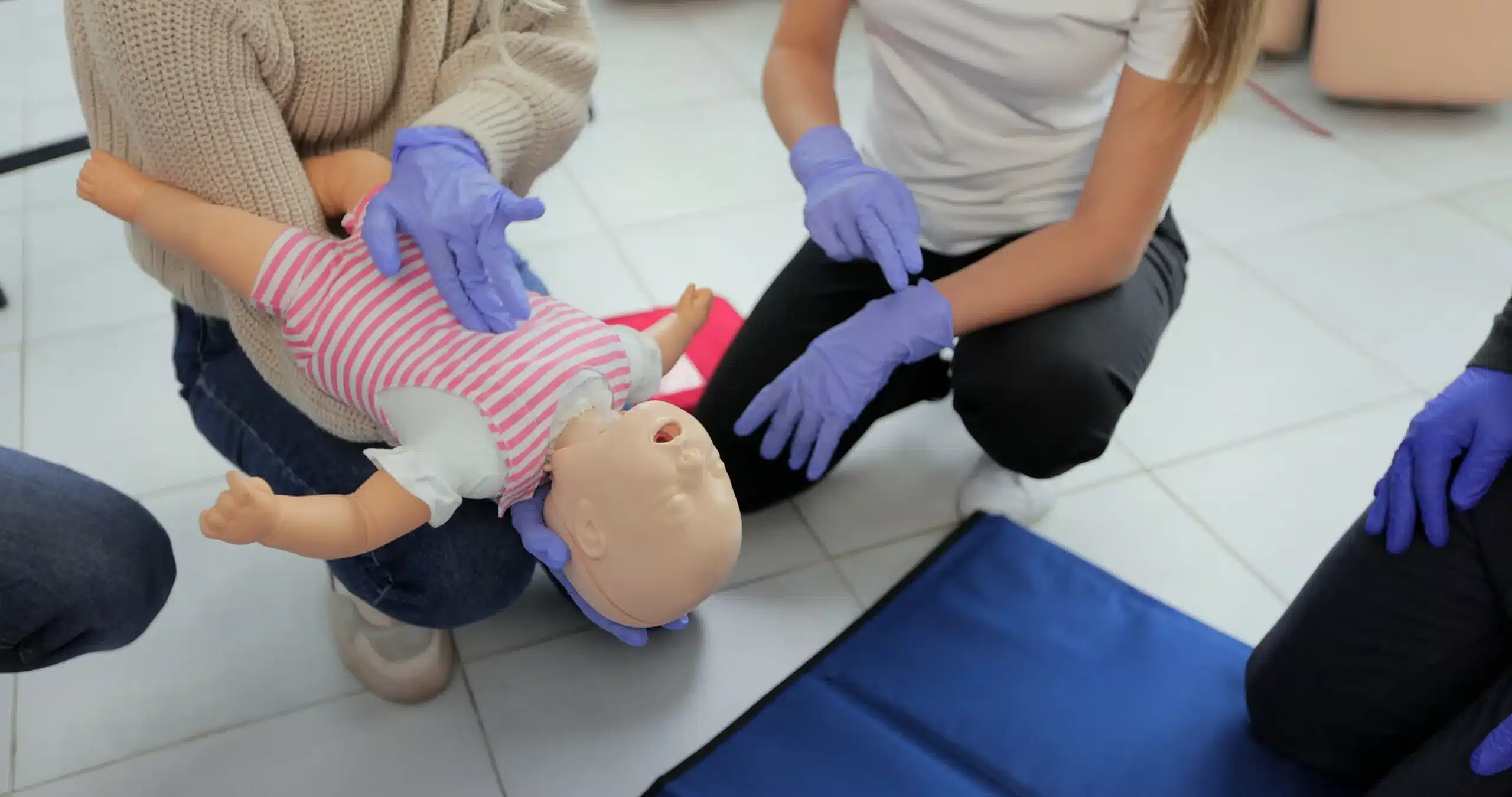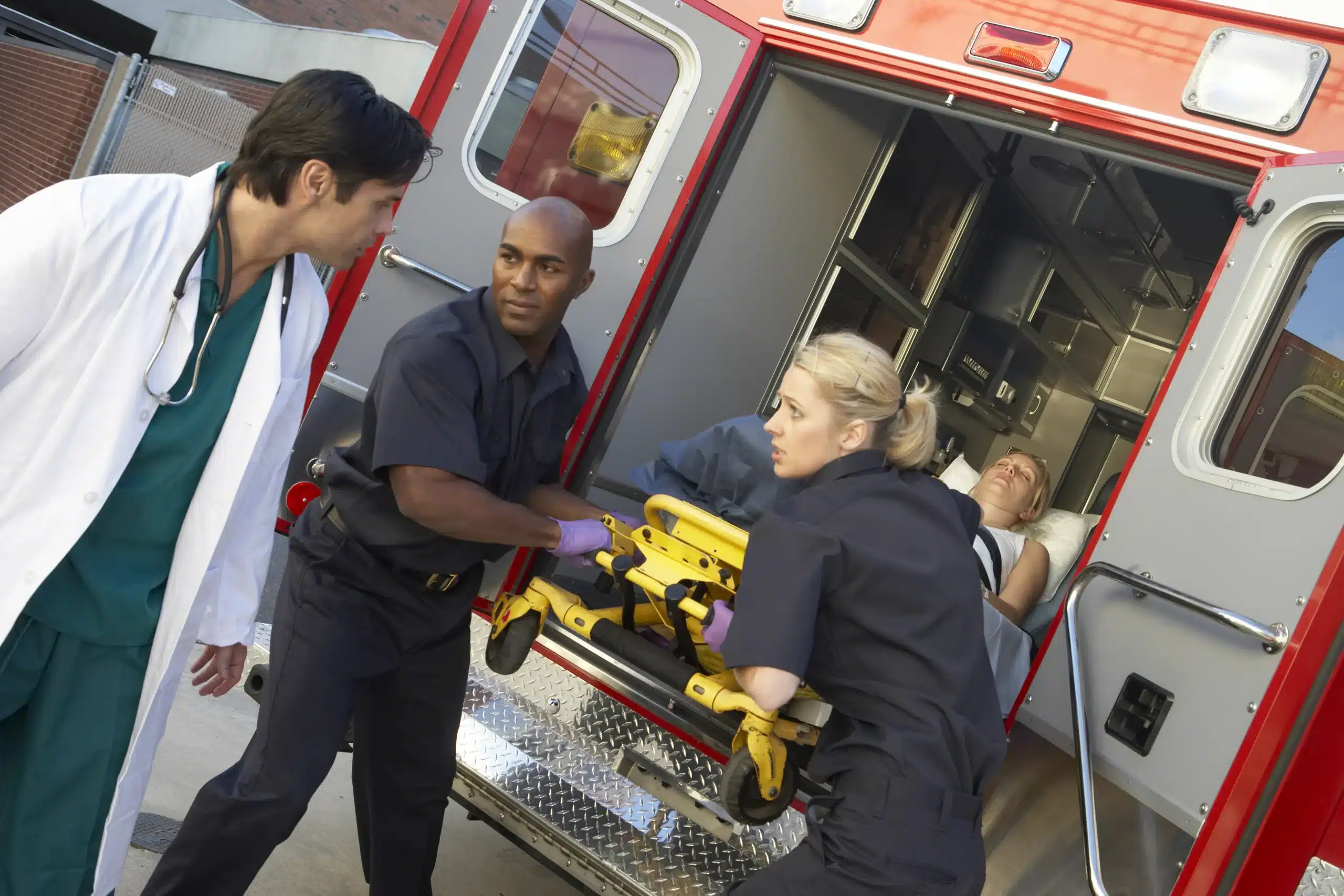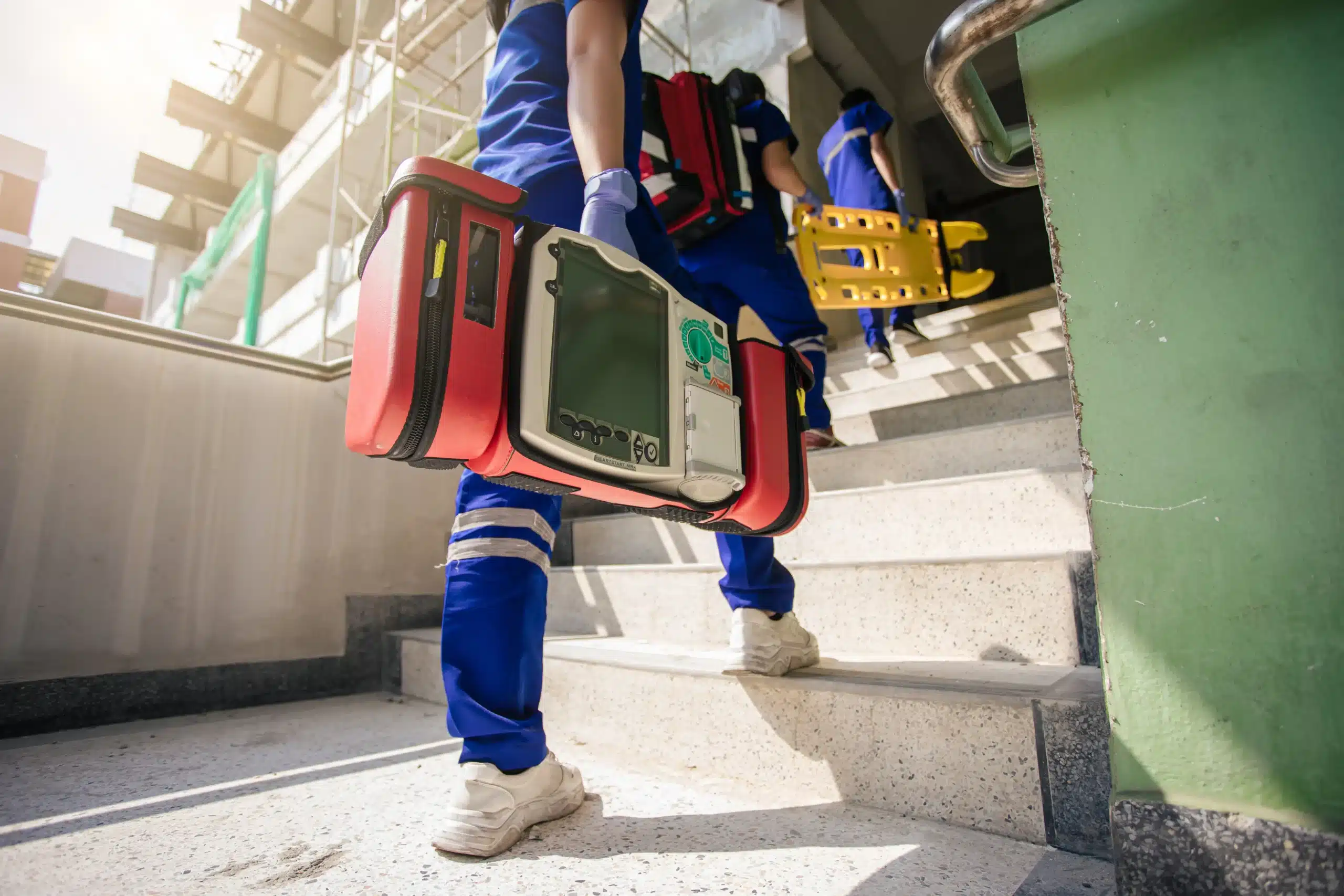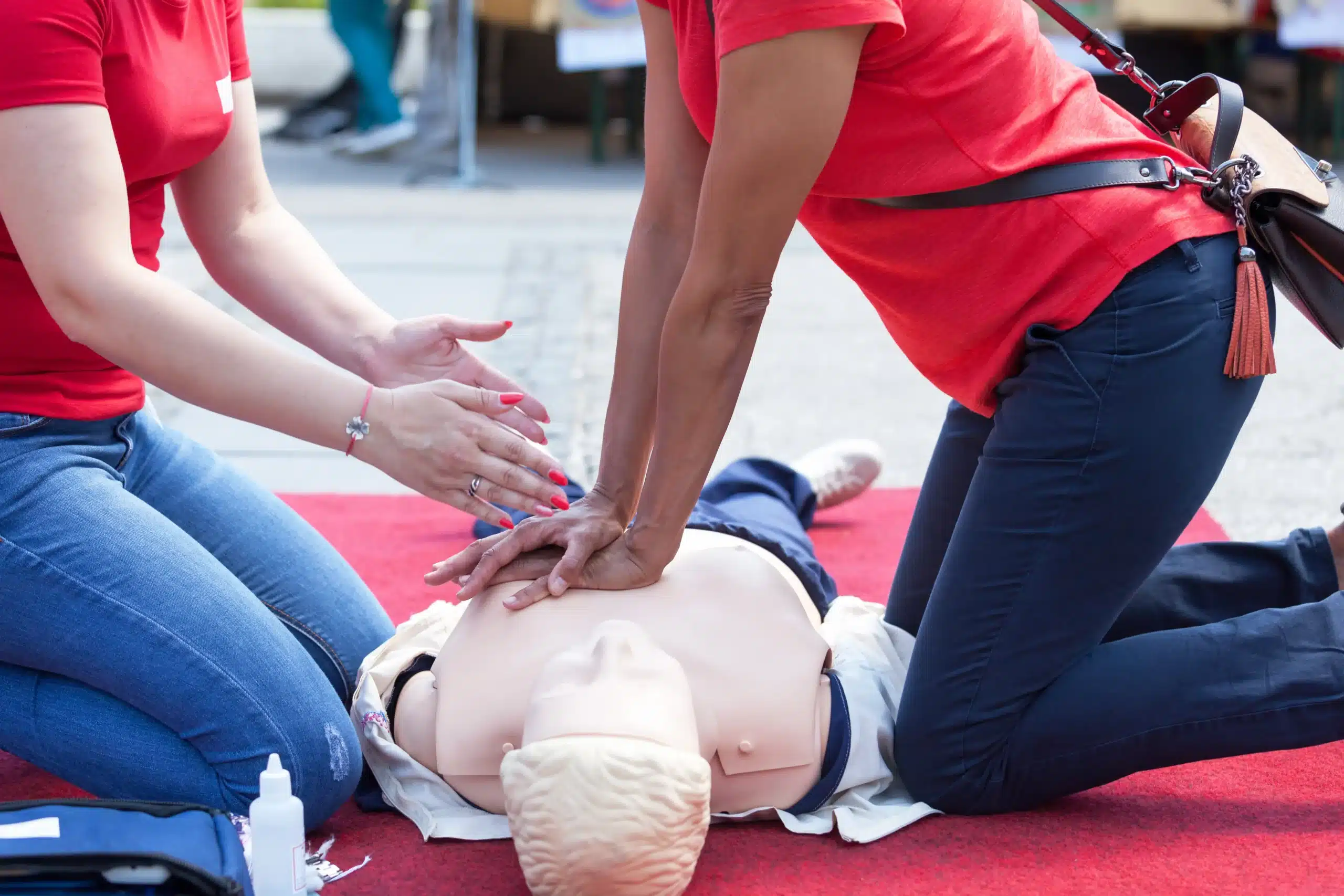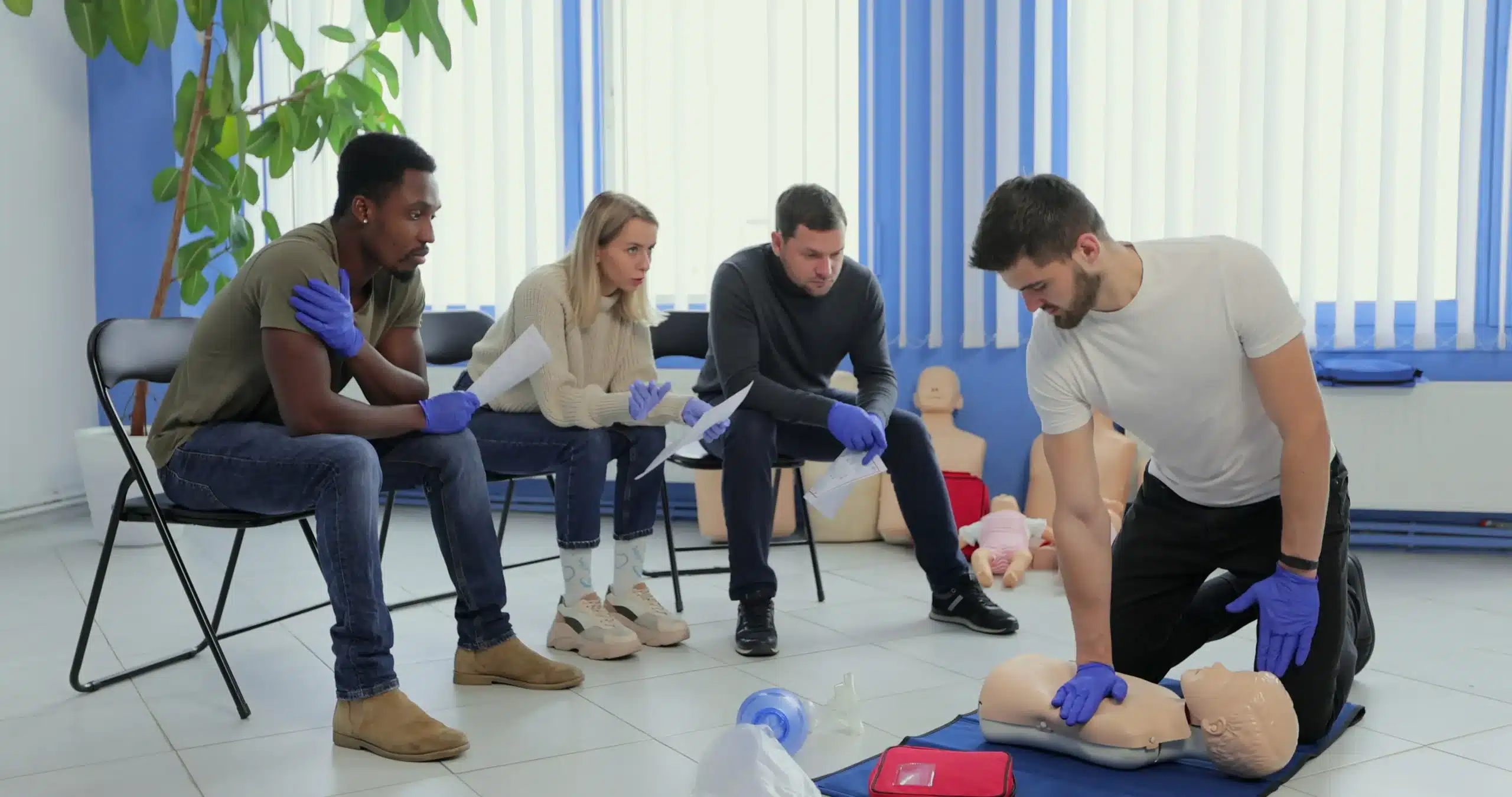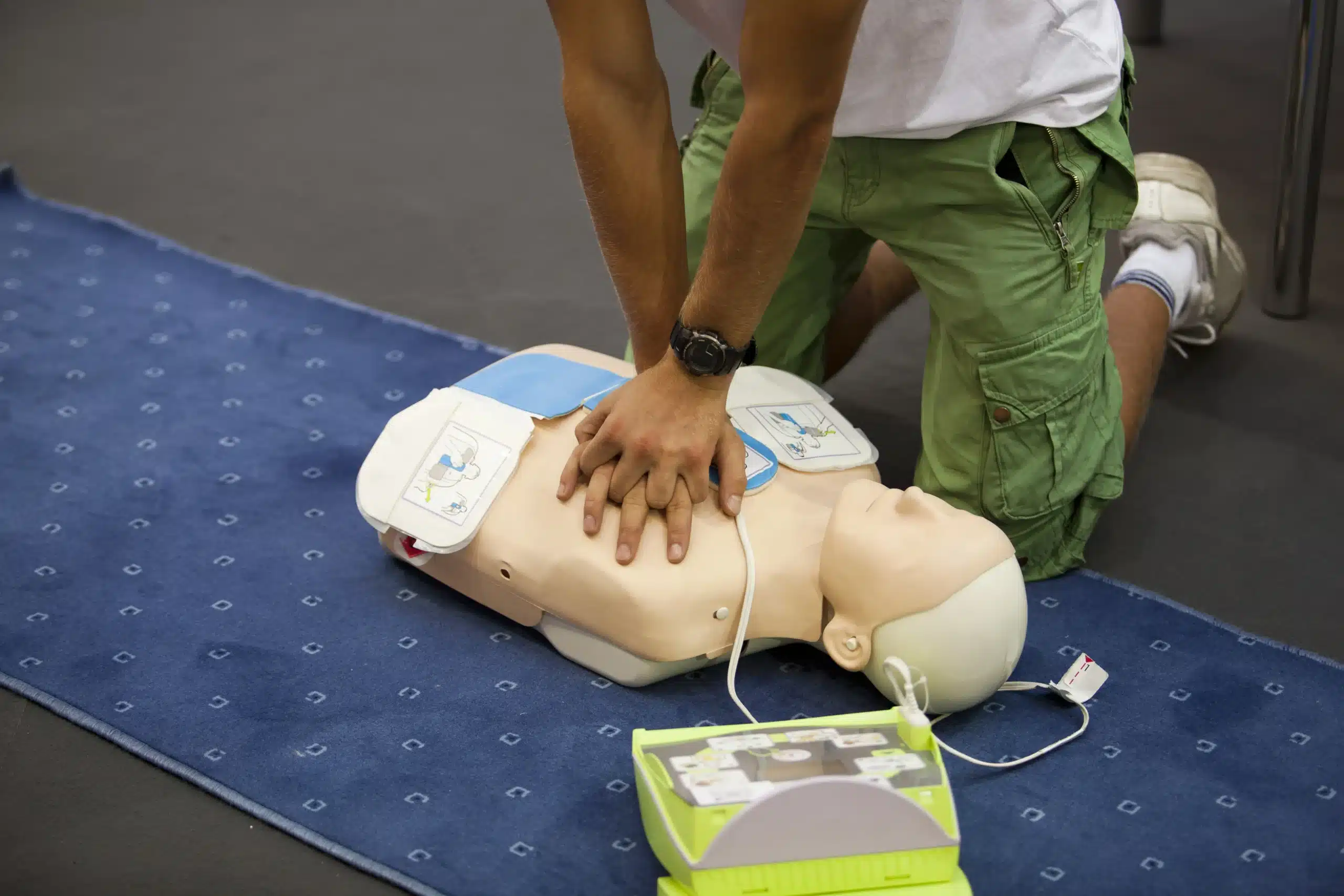ACLS Certification in Martinez: Are you a healthcare provider in Martinez looking to enhance your skills in managing cardiac emergencies? Advanced Cardiovascular Life Support (ACLS) certification is a crucial step in providing high-quality patient care. This comprehensive guide will walk you through the process of obtaining advanced cardiac life support in Martinez. We’ll cover everything from understanding the core curriculum and finding the right training center to preparing for your ACLS course and overcoming common challenges. We’ll also explore the various course structures available, discuss associated costs, and highlight the significant benefits of becoming ACLS certified. Whether you’re in Martinez, Port Chicago, or Benicia, this article will provide you with the information you need to make informed decisions about your ACLS training.
Key Takeaways
- ACLS certification equips you for advanced cardiac care: Mastering ACLS protocols improves patient outcomes and builds confidence in managing emergencies. Prioritize courses with hands-on simulations and a focus on team dynamics.
- Choosing the right ACLS course requires research: Consider factors like course format, instructor experience, and program reputation. Ask providers about their curriculum, resources, and certification validity to find the best fit for your needs.
- Preparation is key to ACLS success: Review current guidelines, ensure your BLS certification is up-to-date, and utilize practice resources. Active learning and reflection during the course will solidify your skills and enhance your preparedness.
What is ACLS?
Advanced Cardiovascular Life Support (ACLS) is a crucial part of emergency medical care. It gives healthcare professionals the skills they need to respond effectively to cardiac emergencies. ACLS builds on the basics of Basic Life Support (BLS) and adds advanced techniques for managing complex medical situations like cardiac arrest, acute coronary syndromes, and strokes. The training covers recognizing cardiac arrest, using defibrillation, and administering medications—all to improve patient outcomes during emergencies. ACLS certification isn’t just a professional requirement; it shows a healthcare provider’s dedication to high-quality patient care in critical situations. It also helps dispel some common misconceptions about advanced cardiac care.
Find ACLS Certification in Martinez
Finding the right ACLS certification course can feel overwhelming, but several excellent options are available in Martinez and the surrounding areas like Port Chicago and Benicia. Let’s explore some of the leading providers:
Martinez CPR Classes
Martinez CPR Classes offers a comprehensive range of American Heart Association (AHA) certifications, including ACLS. As a woman-owned AHA Training Center, they’re committed to serving the community with convenient daily courses. They also offer other certifications like BLS, PALS, and First Aid, making them a one-stop shop for your certification needs. Learn more about their ACLS and BLS courses. Their commitment to low prices makes them an attractive option. They also offer discounts for group classes, which is helpful for workplaces or groups of friends.
Safety Training Seminars
Safety Training Seminars, also a woman-owned AHA Training Center, provides high-quality AHA courses, including ACLS, in Martinez. They prioritize customer convenience with daily courses offered throughout the week. They offer a full suite of certifications, from BLS and CPR to PALS and First Aid. This allows you to complete multiple certifications efficiently. They also offer the specialized RQI program for healthcare professionals.
Bay Area CPR
Bay Area CPR offers AHA-certified BLS, ACLS, PALS, and CPR classes in Martinez. If you’re searching for an ACLS course in the area, they are a solid option. Their focus on providing these essential certifications makes them a valuable resource for healthcare providers and other professionals in Martinez.
Local Hospitals and Training Centers
Beyond dedicated CPR training centers, consider exploring local hospitals and training facilities. Many hospitals offer ACLS certification courses. These courses are often geared towards healthcare professionals and provide advanced resuscitation training. Check with hospitals in Martinez, such as Contra Costa Regional Medical Center or John Muir Health, for potential ACLS training opportunities. You can also search online for “ACLS certification near me” to find additional local providers.
Explore Course Structures & Flexibility
Finding the right ACLS course often comes down to how it fits into your schedule. Luckily, there are several options available in Martinez, ranging from fully online learning to traditional classroom settings, and even blended formats. Let’s break down the possibilities:
Online Learning
Kickstart your ACLS training from the comfort of your home with online learning. These courses typically take three to four hours to complete and offer a convenient way to learn the core ACLS principles and algorithms. Martinez CPR Classes offers online ACLS courses that fit this format. This self-paced approach lets you study when and where it works best for you. Keep in mind that online learning usually requires a separate in-person skills test.
In-Person Skills Tests
After completing the online portion, you’ll need to demonstrate your skills in person. These skills tests often use voice-assisted mannequins (VAMs) and typically don’t require an instructor to be physically present. While you’ll be evaluated independently, phone support is usually available if you have questions or need assistance during the test. This approach streamlines the process and allows for more scheduling flexibility.
Hybrid Options
If you prefer a mix of online and in-person learning, hybrid courses offer the best of both worlds. You can cover the theoretical material online at your own pace and then attend an in-person session for hands-on practice and skills testing. This blended format provides a more comprehensive learning experience and allows you to interact with instructors and peers. Bay Area CPR is one provider that offers this flexible approach.
Class Duration & Scheduling
ACLS course durations vary depending on the format and provider. Online courses for BLS certification can take between one and two hours, while ACLS and PALS courses typically require three to four hours. Bay Area CPR provides estimated times for their courses. In Martinez, classes are often available seven days a week, from 7 am to 6 pm, making it easier to find a time that works for you. Martinez CPR Classes boasts same-day certification cards upon course completion.
Understand ACLS Course Costs
Getting ACLS certified is an investment in your career and patient care. Understanding associated costs will help you budget and choose the right course. Thankfully, high-quality training doesn’t have to break the bank.
Average Price Range
The average cost of an ACLS certification course in Martinez, CA, is around $290. This usually covers the online portion, the in-person skills test, and your official American Heart Association (AHA) certification card. Knowing this benchmark helps you compare options and find the best value. Martinez CPR Classes, for example, offers courses at this price point, making them a competitive choice.
Included Costs
Many training centers aim to make ACLS certification accessible with comprehensive packages. Often, the quoted price includes everything you need: online learning materials, the hands-on skills test, and the AHA certification card. Look for providers like Martinez CPR Classes, which offer a low price guarantee. This transparent pricing ensures no surprises.
Additional Fees & Materials
While the standard ACLS course fee typically covers the essentials, it’s wise to double-check for potential extras. Some providers might have separate charges for course materials or recertification. With Martinez CPR Classes, the process is straightforward. The online course takes about three to four hours, followed by a 40-minute skills test. You’ll receive your AHA certification card the same day, streamlining the process.
Evaluate Instructor Qualifications
Finding the right ACLS instructor is just as important as finding the right course. A qualified instructor can significantly impact your learning and success. Here’s what to consider:
AHA Certification
First, confirm the instructor’s certification through the American Heart Association. Current AHA certification demonstrates that the instructor meets the standards set by the authority in cardiovascular care. This is essential for high-quality ACLS training. Safety Training Seminars is one example of a woman-owned AHA Training Center committed to providing excellent instruction.
Healthcare Background
Your ACLS instructor should ideally have a solid healthcare background. Practical experience in emergency or critical care settings adds a depth of understanding that goes beyond the textbook. Insights from an instructor who has managed cardiac emergencies can be invaluable, bridging the gap between theory and practice and giving you a more comprehensive understanding of ACLS principles. ACLS training is relevant to various medical professionals, including emergency room physicians, anesthesiologists, critical care nurses, and paramedics, so an instructor with experience in one of these fields would be beneficial.
Ongoing Training
Medicine and ACLS guidelines are constantly evolving. Choose an instructor dedicated to ongoing training and professional development. Look for instructors who participate in continuing education and stay current with advancements in resuscitation science. This ensures they’re teaching the most current and effective ACLS techniques. An instructor’s commitment to ongoing ACLS training shows dedication to patient care and providing the best possible instruction, leading to a better learning experience for you and better outcomes for your future patients.
Know What to Expect in an ACLS Course
Getting your ACLS certification is a significant step, so you’ll want to know what the course entails. Here’s a preview of what you’ll learn and how you’ll learn it:
Core Curriculum & Skills
ACLS courses cover essential skills for managing cardiovascular emergencies. You’ll learn to recognize and treat life-threatening arrhythmias like bradycardia and tachycardia. The curriculum also emphasizes effective airway management techniques and how to administer medications in critical situations. A key part of the course is understanding the systematic approach to patient care, including how to assess a patient, interpret electrocardiograms (ECGs), and make quick decisions under pressure. These
Hands-On Practice & Simulations
ACLS training isn’t just about lectures and textbooks. Hands-on practice and simulations are a major component. You’ll work with a team in realistic scenarios, practicing essential skills like chest compressions, bag-mask ventilation, and defibrillation. These simulations help you develop muscle memory and build confidence in your ability to respond effectively in a real emergency. You can expect to encounter real-life situations during these exercises.
Assessments
Throughout the ACLS course, you’ll be assessed on your knowledge and skills. This typically includes written exams to evaluate your understanding of the core concepts. You’ll also participate in practical skills tests, demonstrating your proficiency in performing essential procedures. These ACLS skills evaluations ensure you’re fully prepared to handle real-world emergencies. Successfully completing both the written and practical assessments is required for ACLS certification.
Discover Benefits of ACLS Certification
ACLS certification offers several benefits, from providing better patient care to opening up career opportunities. Let’s explore some key advantages:
Enhance Skills in Cardiac Emergencies
ACLS training equips healthcare professionals with the advanced skills to manage cardiac arrests, respiratory emergencies, and trauma care. You’ll learn to quickly assess patients, make fast decisions, and perform life-saving interventions. This specialized training builds on Basic Life Support (BLS) skills, providing a deeper understanding of cardiovascular emergencies. The California Learning Resource Network explains how valuable this training is for any healthcare professional wanting to advance their skills in these critical areas. Is ACLS Medical Training Legit?
Improve Patient Outcomes
For healthcare providers such as anesthetists, ACLS certification shows a commitment to patient care. Mastering ACLS protocols can greatly improve patient outcomes by shortening response times and ensuring the right interventions are delivered quickly. It allows you to confidently handle complex situations and provide the best possible care during critical moments. American Health Training highlights how this commitment to excellence can truly impact patients’ lives. Demystifying ACLS: A Comprehensive Guide for Anesthetists
Improve Team Coordination & Leadership
Working well as a team is essential in emergencies. ACLS training emphasizes clear communication and coordinated responses within a team. You’ll learn how to communicate effectively with other healthcare professionals, delegate tasks, and work together smoothly during stressful situations. Cascade Training discusses how crucial this improved team coordination is for successful ACLS evaluations and real-world emergencies. ACLS Skills Evaluation: Overcoming Common Challenges
Recognize Reversible Causes
ACLS teaches you to identify and address the root causes of cardiac arrest. You’ll become skilled at interpreting EKG rhythms and using the appropriate ACLS algorithms to manage various cardiac emergencies. Master ACLS explains how fundamental this ability to recognize and treat reversible causes is for positive patient outcomes. Common Mistakes to Avoid During ACLS Scenarios
Increase Confidence in Emergencies
Facing a life-threatening situation can be difficult. ACLS certification builds confidence by giving you the knowledge, skills, and practice to manage emergencies effectively. Through hands-on training and simulations, you’ll develop the ability to stay calm, think clearly, and take decisive action when it’s needed most. Master ACLS points out how valuable this increased confidence is for any healthcare professional. Common Mistakes to Avoid During ACLS Training
Overcome Common ACLS Challenges
Becoming ACLS certified equips you to handle cardiac arrest and other cardiovascular emergencies. But like any advanced medical training, ACLS has its challenges. Let’s break down some common hurdles and how to overcome them.
Manage Time in High-Pressure Scenarios
Time is critical during a cardiac emergency. Every second counts, and quick, decisive action is crucial. Learning to manage time effectively in these high-pressure situations is a core component of ACLS training. Prioritize essential interventions and practice streamlining your actions so you can respond efficiently under pressure. Realistic simulations, like those offered at Martinez CPR Classes, help you hone these critical time management skills.
Communicate Effectively in Teams
Clear communication is just as important as clinical skills during a cardiac arrest. Misunderstandings or delays in relaying information can have serious consequences. ACLS emphasizes teamwork, and your training will cover how to establish clear roles, communicate concisely, and ensure everyone on the team is on the same page. Effective communication ensures coordinated efforts and the best possible patient outcome. Martinez CPR Classes emphasizes these team dynamics throughout its ACLS courses.
Master Airway Management
Airway management is a cornerstone of ACLS, and proficiency in this area is essential. From proper ventilation techniques to correctly using airway devices, mastering these skills can be the difference between life and death. Practice and repetition are key to becoming comfortable with airway management procedures. Common mistakes can be avoided with diligent training and a focus on the fundamentals.
Memorize ACLS Algorithms
ACLS algorithms provide a structured approach to managing various cardiac emergencies. While understanding the underlying principles is important, memorizing these algorithms allows for rapid decision-making in critical situations. Use flashcards, practice scenarios, and other memory aids to internalize these algorithms. A solid grasp of BLS principles forms a strong foundation for building your ACLS knowledge. Consider supplementing your learning with additional resources and practice sessions.
Identify Reversible Causes
Treating the immediate symptoms is critical, but identifying and addressing the underlying cause of a cardiac emergency is equally important. ACLS training teaches you to recognize and treat reversible causes, such as specific drug overdoses or electrolyte imbalances. This involves accurately interpreting EKG rhythms and applying the appropriate algorithm. Recognizing these reversible causes can significantly improve patient outcomes.
Choose the Right ACLS Course
Finding the right Advanced Cardiovascular Life Support (ACLS) course requires careful consideration. The best course for you will depend on your learning style, schedule, and specific needs.
Factors to Consider
Think about these elements as you explore different ACLS courses:
- Course Offerings and Flexibility: Do you need a course that strictly follows American Heart Association guidelines? Consider the course format. Do you prefer in-person learning, a blended learning approach, or a fully online option? Martinez CPR Classes offers a variety of courses and formats. Also, think about scheduling. Look for a course that accommodates your availability.
- Instructor Qualifications: Experienced, certified instructors are essential. Check the instructor’s credentials and experience. Are they certified by the American Heart Association? Do they have a strong healthcare background? A woman-owned business like Safety Training Seminars prioritizes high-quality instruction.
- Reputation and Reviews: Look for training centers with a solid reputation and positive reviews. Word-of-mouth referrals and online reviews offer valuable insights.
Questions for Providers
Once you’ve narrowed down your options, asking potential providers specific questions can help you make the final decision.
- Course Content and Structure: Inquire about the course content and structure. Does it cover the latest ACLS guidelines and best practices? Does it include hands-on practice and simulations? A good ACLS course goes beyond theory, incorporating realistic scenarios, like those described in these ACLS training scenarios, to prepare you for actual emergencies.
- Support and Resources Available: Ask about the resources and support available. Are there practice materials, online resources, or opportunities to ask questions after the course? Knowing what support is available can increase your confidence. Articles like this one on overcoming common ACLS challenges can also be helpful.
- Certification Validity and Recognition: Confirm that the certification is widely recognized and accepted in your field. How long is it valid? Will you receive an official American Heart Association card? RQI programs are a popular way for healthcare professionals to maintain their certifications.
Prepare for ACLS Certification
Getting ready for ACLS certification takes focus and the right approach. Here’s how to prepare:
Study Materials & Resources
ACLS training isn’t just about theory. It includes realistic scenarios to prepare you for real-life emergencies. This hands-on training is crucial for effectively handling critical situations. Review the latest ACLS guidelines before your course. This will give you a head start and help you maximize your learning. Many providers offer practice tests and simulations—use these resources to build your confidence.
Pre-Course Requirements
You’ll need a current BLS Provider certification before starting ACLS training. The American Heart Association RQI program is a convenient way for healthcare professionals in Martinez to maintain their BLS, ACLS, and PALS certifications. Confirm any additional prerequisites with your chosen training center.
Tips for Success
Thorough preparation is key to ACLS certification. Familiarize yourself with the ACLS algorithms and practice identifying and managing reversible causes. Active participation during the course, including asking questions and engaging in scenarios, will cement your understanding. After each scenario, take time to debrief and reflect on your performance. This proactive approach will help you excel in your training and ultimately improve patient care.
Related Articles
- AHA ACLS Classes in Martinez, CA – Martinez CPR Classes
- BLS HeartCode Benicia: Your Certification Guide – Martinez CPR Classes
- BLS Certification in Martinez: Your Complete Guide – Martinez CPR Classes
- AHA Courses in Martinez: Your Guide to Certification – Martinez CPR Classes
- Online BLS Classes in Port Chicago: Your Guide – Martinez CPR Classes
Frequently Asked Questions
What exactly does ACLS certification entail?
ACLS certification involves a comprehensive course covering advanced life-saving techniques for healthcare professionals. It goes beyond basic CPR, focusing on the systematic approach to managing cardiac arrest and other cardiovascular emergencies. You’ll learn to recognize and treat life-threatening arrhythmias, master airway management, administer medications, and work effectively within a team. The course combines online learning with hands-on practice and simulations, culminating in written and practical skills tests.
How much does an ACLS course in Martinez typically cost?
In Martinez, California, the average cost for an ACLS certification course is around $290. This usually includes the online learning materials, in-person skills testing, and your official American Heart Association (AHA) certification card. However, prices can vary, so it’s always a good idea to check with specific providers like Martinez CPR Classes for their current rates and any available discounts.
What’s the difference between online, hybrid, and traditional ACLS courses?
Online ACLS courses offer flexibility, allowing you to complete the coursework at your own pace from anywhere with internet access. However, they typically require a separate in-person skills test. Hybrid courses combine online learning with in-person sessions for hands-on practice and skills evaluation. Traditional courses are entirely in-person, providing a structured learning environment with direct interaction with instructors and peers. Each format has its advantages, so consider your learning style and schedule when choosing.
How can I find a reputable ACLS training provider in my area?
Start by searching online for “ACLS certification near me” to find local providers. Check for providers offering AHA-certified courses, as this ensures they meet established standards. Look for training centers with experienced instructors who have strong healthcare backgrounds. Reading online reviews and seeking recommendations from colleagues can also help you find a reputable provider. Don’t hesitate to contact providers directly and ask about their course content, instructor qualifications, and any available resources.
Do I need any prior certifications before taking an ACLS course?
Yes, a current BLS (Basic Life Support) Provider certification is typically required before starting an ACLS course. This ensures you have a foundational understanding of essential life-saving techniques. Check with your chosen ACLS training provider to confirm their specific prerequisites. If your BLS certification is nearing expiration or has lapsed, you’ll need to renew it before enrolling in an ACLS course.
